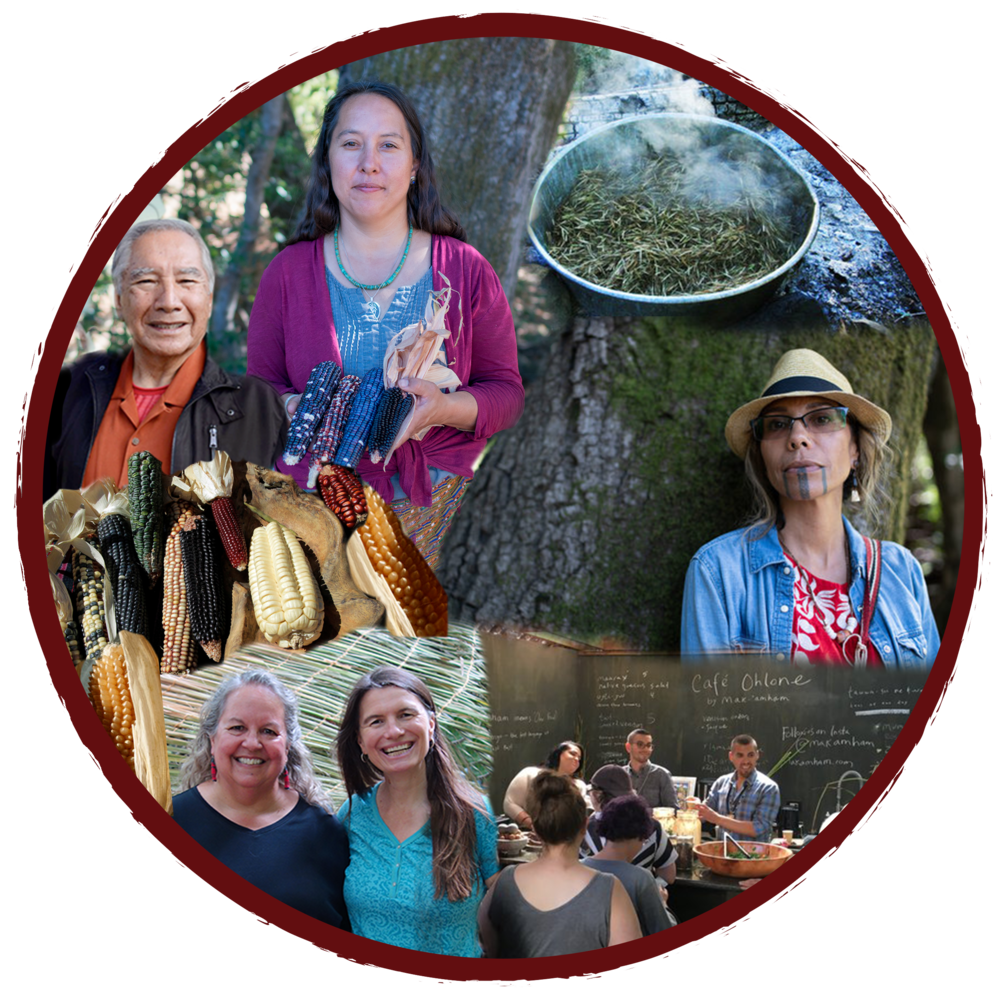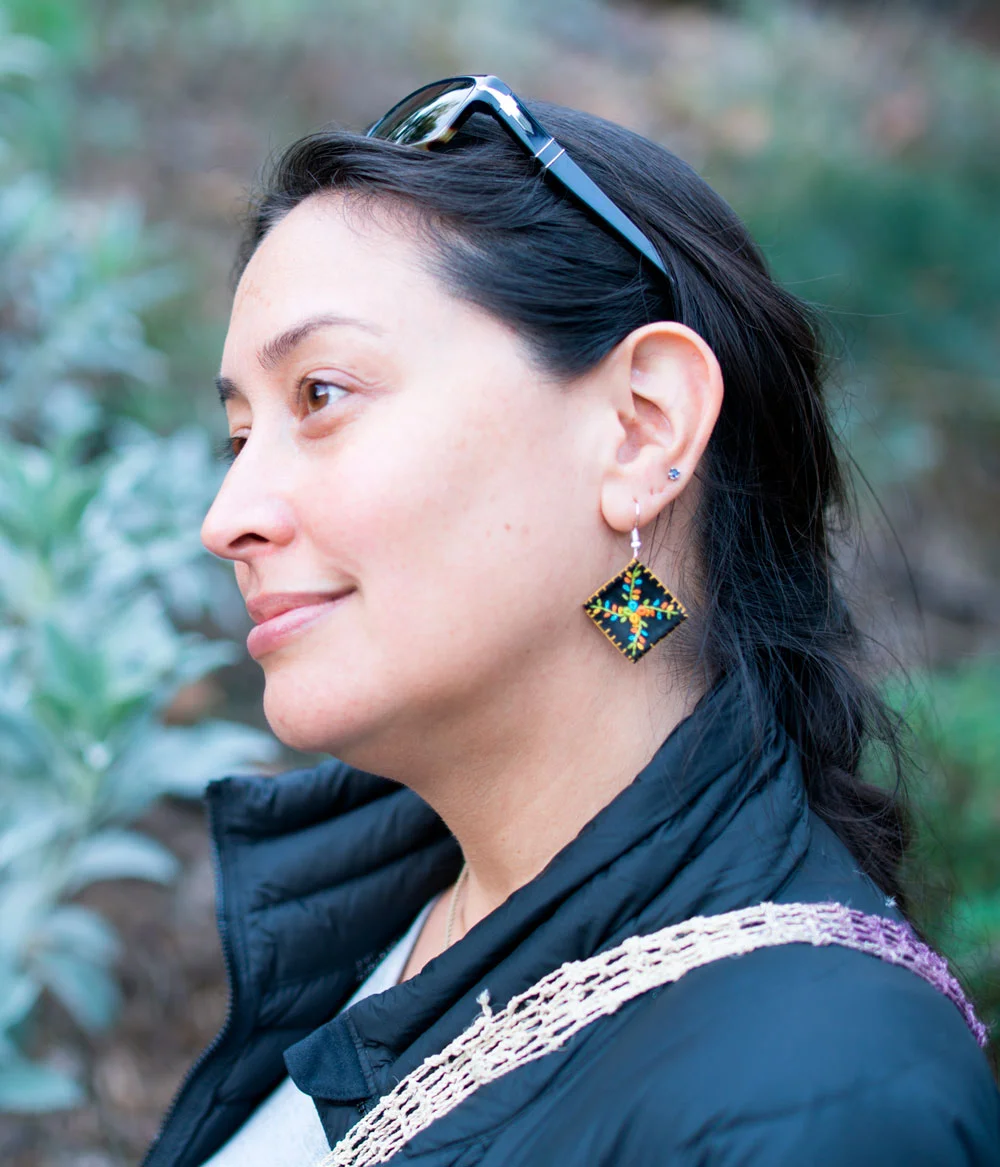The Native Seed Pod celebrates the diversity and beauty of Native seeds, soils, and Indigenous foods. The Native Seed Pod is a fertile place to explore thinking about Indigenous sciences and the physical and poetic seeds needed to renew the health of the Earth at this critical time in history. We are fortunate to be in community with a rich basket of Native Knowledge-Holders, farmers, elders, teachers, and advocates, who articulate the cutting-edge of biocultural diversity protection, food sovereignty and beyond.
Season Four has sprouted! This limited series, Knowledge Symbiosis: Can Biomimicry and Indigenous Science Harmonize? is produced by The Cultural Conservancy’s Native Seed Pod in collaboration with Arizona State University and Learning From Nature: The Biomimicry Podcast. This season features new hosts, new partners, and new storyscapes. Traditional Ecological Knowledge (TEK) and Biomimicry, nature-inspired design, both have roots in and deep respect for natural processes. And these two fields come from different worldviews: biomimicry is oriented from a Western science perspective, while TEK emerges from Indigenous, spiritual, and cosmological worldviews.
We invite dialogue from multiple perspectives—practitioners in biomimicry, and elders, practitioners, and Indigenous scholars—so we might better understand each other and explore opportunities to weave these learnings.
The episodes this season are hosted in rotation by Dr. Melissa Nelson, Dr. Sara El-Sayed, and Lily Urmann, and feature conversations between Kim Tall Bear, Janine Benyus, Dayna Baumeister, PennElys Droz, Maibritt Pedersen, Anne LaForti, and Roxanne Swentzell. These conversations delve into the ethics of science, human-nature connection, regenerative design, and our relationship to all other kin on this planet.
Also, Season 5, focused on Indigenous languages, is now in germination…
The Native Seed Pod is produced by The Cultural Conservancy with generous support from the Tamalpais Trust Fund of RSF Social Finance.
The Cultural Conservancy (TCC) is a Native-led indigenous rights nonprofit organization based in San Francisco. Founded in 1985, we work with California tribes, Native Americans around the US and Canada, Pacific Islanders and Indigenous communities in Central and South America on a wide variety of community-based projects; from sacred site protection to the revitalization of endangered languages, arts and song traditions. Central to our work is acknowledgement of the sacred relationship of Native peoples to their land and waters, and of the importance of their physical, mental and spiritual health.
PODCAST TEAM
Host/Writer/Director: Melissa K. Nelson (Anishinaabe/Métis)
Producer: Sara Moncada (Yaqui)
Producer: Mateo Hinojosa (mestizo Quechua)
Co-Producer: Raven Marshall (Sicangu/Ihanktonwan)
Partnership Coordination: Alexis Stanley (Diné, Acoma, Honduran)
Audio Engineering, Music, Soundcaping: Colin Farish - listen to Colin’s music at colinfarish.com
Art: John Jairo Valencia - see more of John Jairo’s art on Instagram @elotedreamz
Production Assistant: Alexandru Salceanu
Production Assistant: Timoteo Montoya (Lipan Apache)
Graphic Design: Diane Rigoli, Rigoli Creative
Photography: Melissa K. Nelson, Mateo Hinojosa
HOST/WRITER/DIRECTOR
Melissa K. Nelson, Ph.D. is an award-winning ecologist, writer, media-maker, and Indigenous scholar-activist. For over 30 years she has been dedicated to Indigenous rights and revitalization and the protection of Native lands and food sovereignty. Melissa is a professor of Indigenous Sustainability at Arizona State University and professor emerita of American Indian Studies at San Francisco State University. She is board chair of the Cultural Conservancy, an indigenous rights organization, which she directed as a founding executive director and CEO from 1993 - 2021. Melissa is the co-producer and photographer of the award-winning documentary film, The Salt Song Trail: Bringing Creation Back Together, and has co-produced several other documentary short films with The Cultural Conservancy, the Native American Academy, and Philomath Films. She was a writer and host for the PBS website and documentary film, Circle of Stories, and consultant on the award-winning IMAX film, Into American’s Wild. She has co-produced several audio recordings, including Songscapes of Native America, Profiles of Native American Food Revitalization (with Slow Food USA), Red Earth Rising (with Canyon Records) and Sounds of Belonging (with ASU). In 2018 she co-founded the Native Seed Pod podcast and serves as its primary host and writer. Melissa has also edited and contributed to three anthologies focused on Indigenous ecological knowledges. She is Anishinaabe/Cree/Métis/Norwegian, a proud member of the Turtle Mountain band of Chippewa Indians.
FEATURED PRODUCER
Sara Moncada, M.A., is a Native educator, dancer, filmmaker, author and cultural arts advocate.Sara became the organization’s second CEO in 2021 after previously serving as the first Chief Program Officer since 2016. Sara is co-founder of Wise Women Circles, a women-owned inspirational media company, and is a dancer and educator with Sewam American Indian Dance, a Bay Area-based cultural arts and education organization. She was previously the Managing Director for the nonprofit Institute for Staffing Excellence and Innovations and On Nursing Excellence, organizations devoted to inspiring and strengthening the effectiveness, recognition and wellbeing of care-givers’ worldwide. Prior to her focus in the nonprofit sector, Sara was on the team of multiple start-up technology companies with a spectrum of responsibilities that supported rapid growth, positive board and client relationships, and launching successful products and media programs into the market. As a cultural artist and as a powwow and Flamenco dancer, she has presented on stages around the world and can often be found singing quietly to herself or dancing little steps while planting in the field. For more than a decade, she has presented and taught across the country and internationally on Native American arts and culture and is co-author of the book The Dance of Caring, a book exploring Native American Hoop Dance as a model for wellness. As a media maker, her work includes being producer of the internationally successful documentary film NURSES If Florence Could See Us Now, honoring the work of nurses across the country, and producer of the upcoming film project Finding Compás. Sara maintains oversight and overall management of TCC, our partnerships and ongoing circles of kin, and leads the development of the land and work at Heron Shadow.










